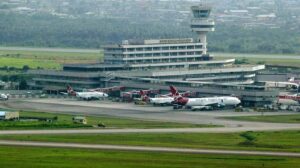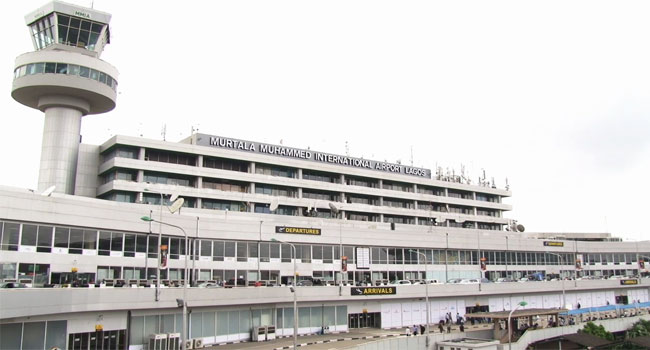Aviation workers’ unions in Nigeria have announced plans to stage a peaceful protest on September 18, 2024, in response to what they describe as an unsustainable policy imposed by the Federal Government. The unions, which represent a wide range of employees in the aviation sector, are calling for an end to the 50% deduction from the internally generated revenues (IGR) of key aviation agencies. This deduction policy, they argue, is crippling the financial operations of these agencies and threatening the stability of the entire aviation industry.
The planned protest was officially announced in a statement jointly signed by several key figures in Nigeria’s aviation labor movement. The statement was endorsed by Ocheme Aba, General Secretary of the National Union of Air Transport Employees (NUATE), and Frances Akinjole, Deputy General Secretary of the Air Transport Services Senior Staff Association of Nigeria (ATSSSAN). Other unions lending their support include the Association of Nigerian Aviation Professionals (ANAP), represented by its Secretary General, Abdul Rasaq, the National Association of Aircraft Pilots and Engineers (NAAPE), represented by General Secretary Olayinka Abioye, and the Amalgamated Union of Public Corporation, Civil Service Technical and Recreational Services Employees (AUPCTRE), whose General Secretary, Sikiru Waheed, also signed the statement.
 The core issue driving this protest is the Federal Government’s refusal to heed repeated calls from the unions to reverse the deduction policy, which has escalated significantly since its introduction. Initially, the Treasury Single Account (TSA) policy, which mandates deductions from the revenues of government agencies, was set at 25% in October 2022. However, in less than two years, the percentage taken from the internally generated revenues of aviation agencies has doubled, reaching 50% in January 2024.
The core issue driving this protest is the Federal Government’s refusal to heed repeated calls from the unions to reverse the deduction policy, which has escalated significantly since its introduction. Initially, the Treasury Single Account (TSA) policy, which mandates deductions from the revenues of government agencies, was set at 25% in October 2022. However, in less than two years, the percentage taken from the internally generated revenues of aviation agencies has doubled, reaching 50% in January 2024.
The unions argue that this drastic increase has placed unbearable financial strain on agencies such as the Nigerian Civil Aviation Authority (NCAA), the Federal Airports Authority of Nigeria (FAAN), the Nigerian College of Aviation Technology (NCAT), the Nigerian Meteorological Agency (NiMet), the Nigerian Airspace Management Agency (NAMA), and the Nigerian Safety Investigation Bureau (NSIB). These organizations, which are not profit-making entities, are designed to operate on a cost-recovery model. According to the unions, they simply cannot function effectively with only half of their internally generated revenue at their disposal.
“All workers of the NCAA, FAAN, NAMA, NiMet, NCAT, and NSIB, in joint solidarity with all aviation workers, are hereby directed to embark on peaceful protests at all airports nationwide on September 18, 2024, to demand the discontinuation of the 50% deduction policy,” the unions stated.
The statement highlighted the unions’ numerous attempts to engage the government in dialogue to explain the detrimental effects of the policy. They stressed that aviation agencies are service-oriented and designed to recover costs, not generate profits. The unions have consistently warned that subjecting these agencies to a 50% revenue cut threatens their ability to provide essential services. The unions claim that since the TSA policy was implemented, their warnings have fallen on deaf ears.
“All efforts on our part have failed to impress it upon the Federal Government that all these agencies are cost-recovery organizations and not profit-making entities. As such, they cannot survive on half of their incomes under any model of administration, or any other guise whatsoever. The ultimatum given to the Minister of Aviation on this matter has expired since the end of August 2024,” the statement continued.
The unions’ frustration stems from the fact that the Federal Government appears unyielding despite the dire financial situation the aviation agencies now face. They insist that unless the deductions are reversed, the safety, efficiency, and overall functionality of Nigeria’s aviation sector will continue to deteriorate.
The protest on September 18 is expected to involve aviation workers across all key airports in Nigeria. This nationwide action is aimed at drawing attention to the financial hardships being imposed on the sector. The unions hope that by mobilizing workers and peacefully protesting at airports, they will force the government to reconsider the policy.
The deduction policy has already had visible effects on the operations of these agencies, according to union leaders. FAAN, for instance, is responsible for managing and maintaining airports across the country. With only 50% of its revenue available, the agency has reportedly struggled to keep up with maintenance costs, safety standards, and operational efficiency. Similarly, the NCAA, which regulates the entire aviation industry, has faced challenges in meeting its regulatory and oversight responsibilities under such restrictive financial conditions.
For NiMet, NAMA, and NCAT, the impact is no less severe. These agencies play crucial roles in ensuring the safety and training of personnel in the aviation industry, as well as providing critical weather information and airspace management. The unions argue that continued deductions from their revenues will lead to a degradation of services, which could have far-reaching consequences for both the safety of air travel and the country’s reputation in the global aviation community.
As the protest date draws closer, the unions have reiterated that this action is a last resort after months of failed negotiations. They have called on all aviation workers to participate, assuring them that the protest will be peaceful but resolute. By staging this protest, the unions hope to send a clear message to the government that the current revenue deduction policy is unsustainable and that the survival of the aviation sector depends on its immediate reversal.
In closing, the unions reaffirmed their commitment to ensuring the safety and well-being of the Nigerian aviation sector and its workers, stressing that their fight is not only for the workers but also for the preservation of a sector that is vital to the country’s economy and global standing.




